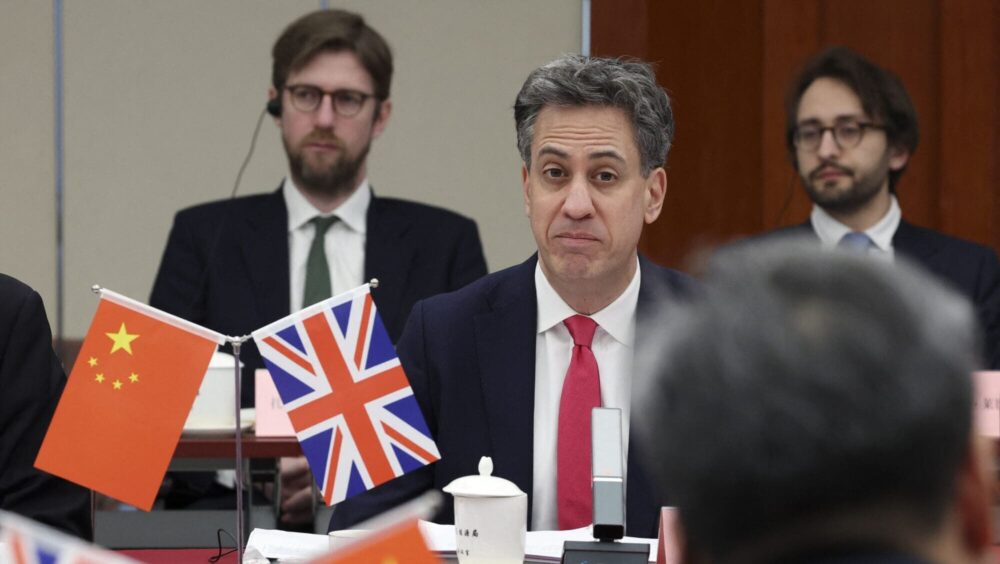
Britain’s Energy Secretary Ed Miliband attends the China-UK Energy Dialogue in Beijing
FLORENCE LO / POOL / AFP
The UK government will oppose a possible parliamentary motion that would ban public funds from being spent on solar panels—solar farms being a key element of the European drive to net zero—produced by slave labour.
One component of PV panels in particular, polysilicon, is produced in China’s Xinjiang Uyghur Autonomous Region. Research suggests that as much as 97% of the global supply of photovoltaic (PV) panels, which make solar energy, may contain components made by slave labour.
So when London officials say “We can’t shy away from China’s role in global energy supply chains,” they really mean that Europe is totally reliant on China for solar production, made morally or otherwise.
It is for the same reason that the European Commission has been hesitant about imposing trade restrictions on Chinese solar imports, despite the additional problem here of smaller European producers losing out in a flooded market.
One renewable energy consulting firm says that up to 90% of solar modules used in the European Union market come from China.
Responding to UK net zero secretary Ed Miliband’s opposition to this anti-forced labour amendment, the government’s own independent anti-slavery commissioner stressed that “there are more victims [of modern slavery] identified than ever before,” and urged officials to “protect human rights and reduce the risk of public procurement of goods made by forced labour.”
10 years since the Modern Slavery Act passed there are more victims identified than ever before. The Govt should let the Great British Energy Bill be amended to protect human rights and reduce the risk of public procurement of goods made by forced labour https://t.co/QuIhz9Sr7K
— Independent Anti-Slavery Commissioner (@UKAntiSlavery) March 21, 2025
The procurement of solar panels is currently a big deal, given Miliband’s plan to give hundreds of schools and hospitals £180 million (€215 million) for the devices. The government minister admitted that China would play a significant role in this rollout because Britain’s “solar panel industry has not got this kind of share of the market.”
This comes after The Sun got its hands on a government document that it claims shows officials know the net zero by 2050 target has a “potential risk of destabilising the financial system.”
Also over the weekend, Nigel Farage’s Reform party said Heathrow Airport was forced to close on Friday—temporarily causing chaos—due to its diesel generator backup being removed as part of the transition to net zero.
Heathrow Airport had no diesel generator backup. It was removed as part of their drive to net zero.
— Nigel Farage MP (@Nigel_Farage) March 23, 2025
Dubai Airport and many military bases do have diesel generators and their aircraft would have continued flying.
The truth about this disaster is being withheld.
